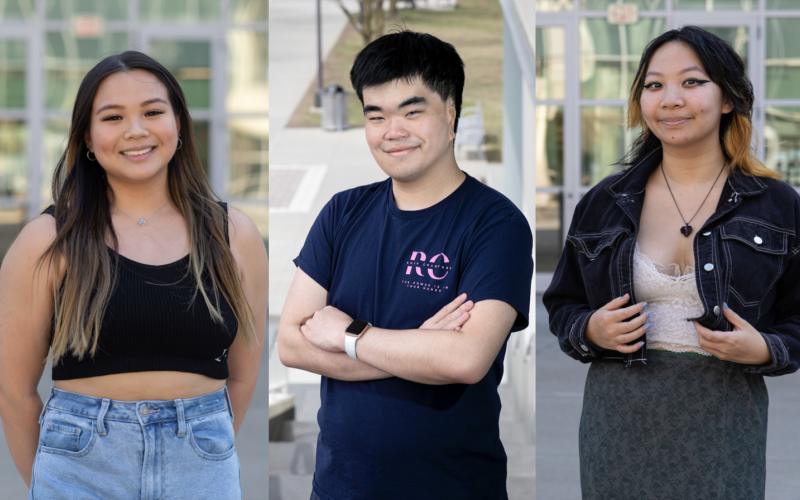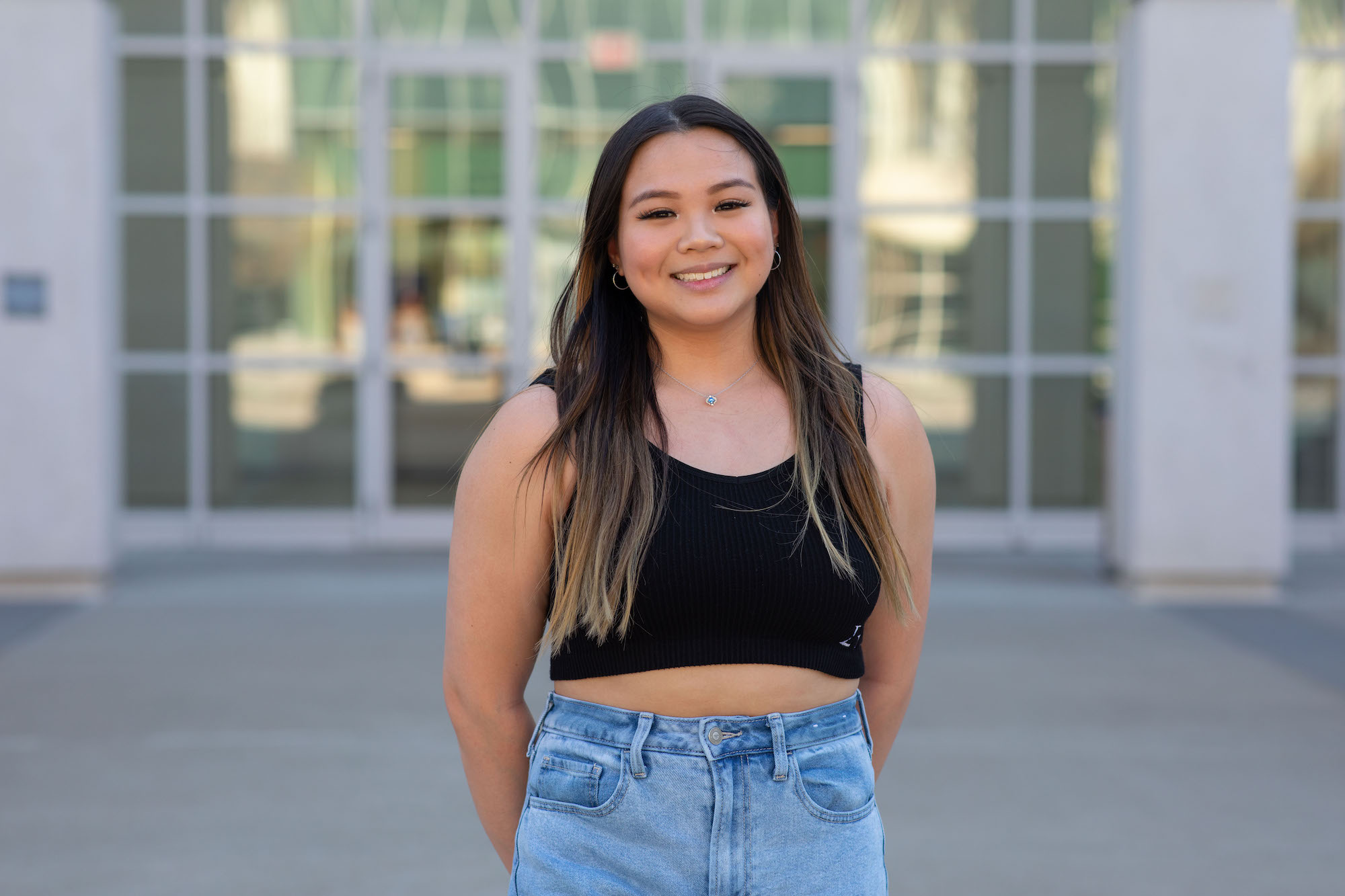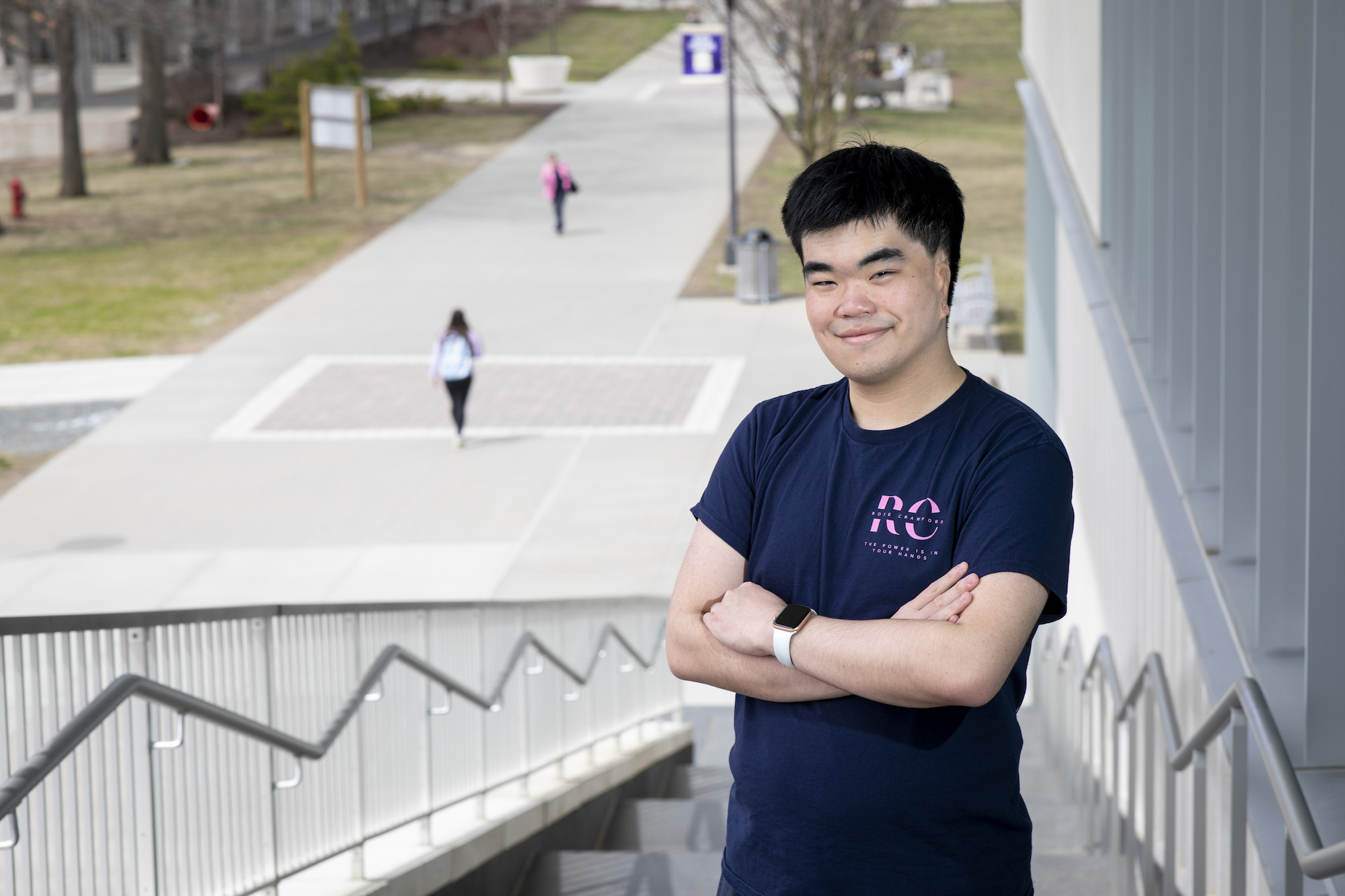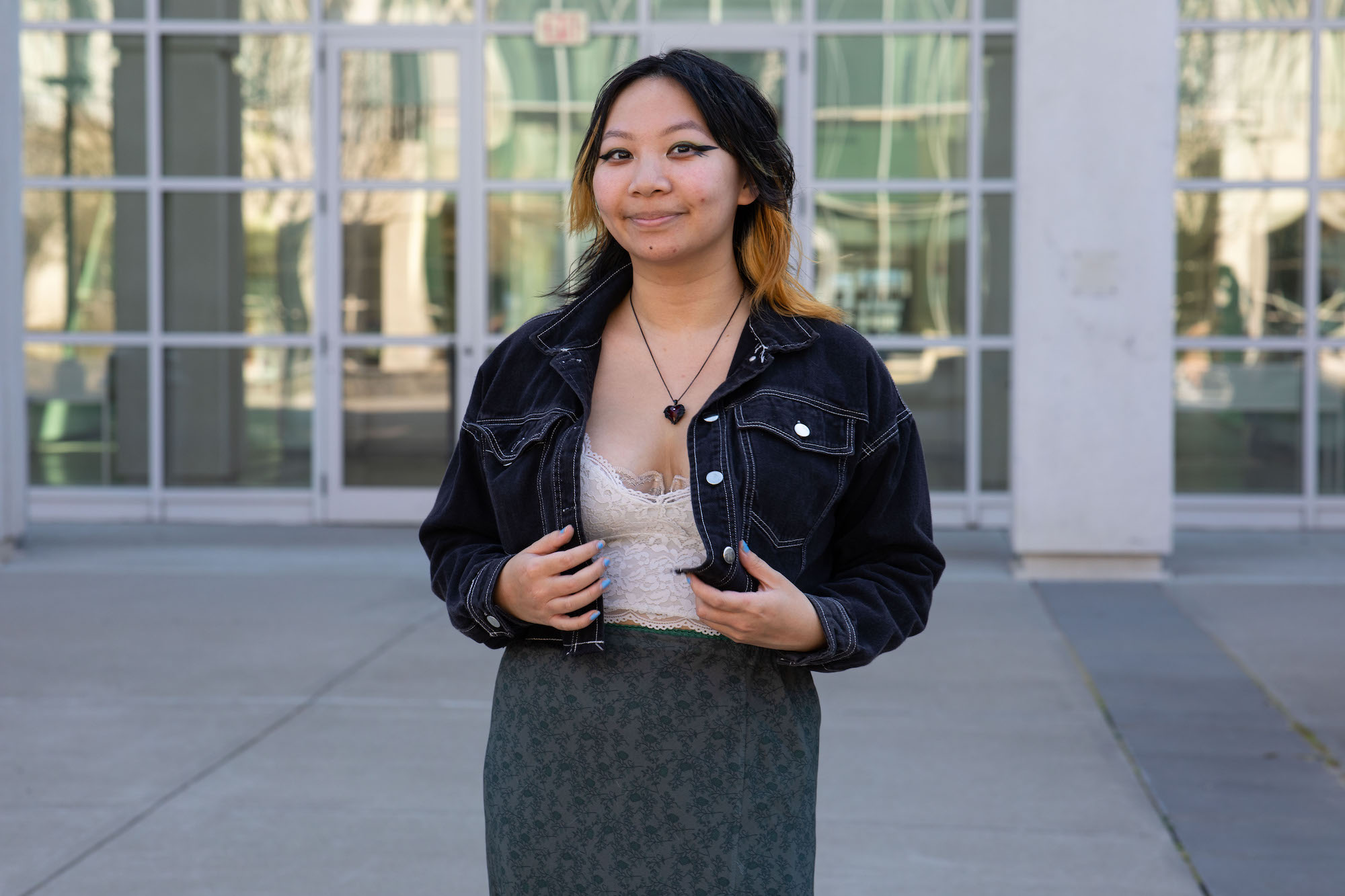UAlbany Students Reflect on AAPI Heritage Month

ALBANY, N.Y. (May 30, 2023) — Asian American and Pacific Islander (AAPI) Heritage Month, which takes place from May 1 to May 31, celebrates the contributions of people of Asian and Pacific Islander descent to U.S. history and culture.
The commemoration dates back to the late 1970s, when Congress passed a resolution proclaiming the first 10 days of May as Asian/Pacific American Heritage Week. In 1990, Congress passed a resolution expanding the observance to a month. May was annually designated as Asian/Pacific American Heritage Month in 1992, and was renamed AAPI Heritage Month in 2009.
The month of May was chosen to commemorate the immigration of the first Japanese people to the U.S. on May 7, 1843 and the completion of the transcontinental railroad — built largely by Chinese immigrants — on May 10, 1869. The monthlong celebration, however, recognizes contributions of people from across the entire Asian continent and Pacific Islands.
UAlbany students were recently asked to share what AAPI Heritage Month means to them.
Kaitlyn Chan

“To me, AAPI Heritage Month is a time to celebrate and honor my Asian heritage. For far too long, my community has been overlooked and our accomplishments have gone unrecognized. As part of the silent minority, we have been hesitant to acknowledge our own achievements, but now we are beginning to embrace and celebrate them. It's an important time to come together and recognize the contributions of Asian Americans and Pacific Islanders to our society. It's my ardent desire to ensure that students and the wider community are aware of the profound and diverse history that characterizes our cultures. We refuse to be defined by the stereotypes and prejudices that have burdened the Asian community, and we remain steadfast in our commitment to shatter them. Every single day, we persevere and strive to overcome these obstacles, demonstrating our resilience and unwavering spirit. By recognizing and celebrating our heritage, we empower ourselves and inspire others to do the same.”
Jeremy Zheng

“AAPI Heritage Month means a month where we can celebrate the rich history, diversity, traditions, and culture of AAPI Americans here in the United States. It's also very important that we use AAPI Heritage Month to recognize the challenges and struggles that Asian Americans face in the United States throughout history and recent events.”
Jaci Yong

“To me, AAPI Heritage Month is an acknowledgement of our beautiful culture, our diversity, our strengths and our struggles, and most importantly, our legacy. It is a reminder that our story matters. I want others to understand that we are not a monolith. Asian culture at a baseline is commonly recognized as very East Asian centric, if at all. I am part Chinese, but also Singaporean, Filipino, and Malaysian. These cultures, while unified in some aspects, also have their own distinct cultural traditions and beliefs, all equally beautiful and unique. One of the organizations that I am involved with on campus is the Association of Southeast Asian Students (ASEAS). It was through ASEAS that I became inspired to learn more about my Southeast Asian culture, since a lot of what I knew of Asian culture was from my Chinese relatives and peers. Southeast Asian culture is less well-known and much less appreciated, and I am grateful that ASEAS has given me and others on campus the opportunity to learn and take part in Southeast Asian traditions, as well as provide a space for Southeast Asian students to be with others who share their culture.”




